THE official opening of Parliament and President Jacob Zuma’s state of the nation address will take place at a critical juncture for SA. Social tensions are rising, an election and its political mudslinging is nigh, while the economy provides no room for political extravagance.
Partly because of leadership neglect and also due to economic difficulties, social strife; particularly around race, is reaching uncomfortable levels. It is an environment ripe for dangerous populism that could further divide society, yet it is also an opportunity for Mr Zuma to show leadership.
His most important task is to tackle the struggling economy. While South Africans are used to a long shopping list of government expenditure, the times demand a tougher message. More sacrifice and resilience is needed to get us out of the doldrums. It is a huge political risk in an election year, but it is necessary to temper expectations and avoid serious disaffection later.
It may be difficult for Mr Zuma to say so, but the credit rating agencies will be the ones he has to convince the most. They have put him on a short leash and indicated they won’t hesitate to downgrade SA to junk status if the government does not demonstrate the political will needed to control expenditure and make a better effort to grow the economy.
Although denialists may argue that rating agencies are not to be taken seriously, their assessment is not for us, but for the global institutions from which we want to borrow money or attract investments.
Many are not allowed to put their money in a country with a sub-investment grading. Retaining our standing in local and international markets is now a strategic imperative.
Mr Zuma also needs to announce measures that would help to free private investment capital and allow SA to respond with speed to existing and future opportunities.
Our regulatory red tape is notorious, while constantly changing laws and policies make investment decisions tricky. Policy certainty is now key and it would be a welcome shot in the arm if the African National Congress’s lekgotla gave Mr Zuma the mandate to make rapid changes where necessary. To do any of this, the government needs different sectors of the economy and society to collaborate more, but the glue to that collaboration is trust. This means labour, business and the government have to agree on clear common objectives and obligations that each meets.
Some bitter pills have to be swallowed. For the government, it means letting go of deep-seated ideological positions, such as the mistrust of business. Business has to have a more expansive attitude to investment, while organised labour has to manage members’ expectations.
The national minimum wage — while totally appropriate given our history and the harsh lives of many workers — will simply not work if it starts off as a blunt instrument.
A poor economy results in struggling employers. A national minimum wage discussion and decision that ignores the uniqueness of each sector’s challenges is bound to end in failure.
There is always a more realistic economic response to irrational policy making — and in this instance, that is likely to be more job losses in a country that is desperate to employ more people.
None of these issues are easy to resolve, but that is the natural challenge of leadership, something Mr Zuma has been reluctant to demonstrate for years. We hope he recognises the crisis and is spurred onto more urgent action.
But Mr Zuma’s biggest challenge is still credibility. His speech will come two days after the Nkandla issue is before the Constitutional Court. Nkandla has done more to erode his standing than any other issue.
His offer to pay back some of the money wasted on his private home may have come a little too late, but that is no reason not to try. The world will be watching.

Jacob Zuma. Picture: AFP PHOTO/JOHN MACDOUGALL
THE official opening of Parliament and President Jacob Zuma’s state of the nation address will take place at a critical juncture for SA. Social tensions are rising, an election and its political mudslinging is nigh, while the economy provides no room for political extravagance.
Partly because of leadership neglect and also due to economic difficulties, social strife; particularly around race, is reaching uncomfortable levels. It is an environment ripe for dangerous populism that could further divide society, yet it is also an opportunity for Mr Zuma to show leadership.
His most important task is to tackle the struggling economy. While South Africans are used to a long shopping list of government expenditure, the times demand a tougher message. More sacrifice and resilience is needed to get us out of the doldrums. It is a huge political risk in an election year, but it is necessary to temper expectations and avoid serious disaffection later.
It may be difficult for Mr Zuma to say so, but the credit rating agencies will be the ones he has to convince the most. They have put him on a short leash and indicated they won’t hesitate to downgrade SA to junk status if the government does not demonstrate the political will needed to control expenditure and make a better effort to grow the economy.
Although denialists may argue that rating agencies are not to be taken seriously, their assessment is not for us, but for the global institutions from which we want to borrow money or attract investments.
Many are not allowed to put their money in a country with a sub-investment grading. Retaining our standing in local and international markets is now a strategic imperative.
Mr Zuma also needs to announce measures that would help to free private investment capital and allow SA to respond with speed to existing and future opportunities.
Our regulatory red tape is notorious, while constantly changing laws and policies make investment decisions tricky. Policy certainty is now key and it would be a welcome shot in the arm if the African National Congress’s lekgotla gave Mr Zuma the mandate to make rapid changes where necessary. To do any of this, the government needs different sectors of the economy and society to collaborate more, but the glue to that collaboration is trust. This means labour, business and the government have to agree on clear common objectives and obligations that each meets.
Some bitter pills have to be swallowed. For the government, it means letting go of deep-seated ideological positions, such as the mistrust of business. Business has to have a more expansive attitude to investment, while organised labour has to manage members’ expectations.
The national minimum wage — while totally appropriate given our history and the harsh lives of many workers — will simply not work if it starts off as a blunt instrument.
A poor economy results in struggling employers. A national minimum wage discussion and decision that ignores the uniqueness of each sector’s challenges is bound to end in failure.
There is always a more realistic economic response to irrational policy making — and in this instance, that is likely to be more job losses in a country that is desperate to employ more people.
None of these issues are easy to resolve, but that is the natural challenge of leadership, something Mr Zuma has been reluctant to demonstrate for years. We hope he recognises the crisis and is spurred onto more urgent action.
But Mr Zuma’s biggest challenge is still credibility. His speech will come two days after the Nkandla issue is before the Constitutional Court. Nkandla has done more to erode his standing than any other issue.
His offer to pay back some of the money wasted on his private home may have come a little too late, but that is no reason not to try. The world will be watching.


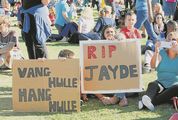
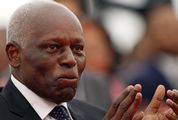

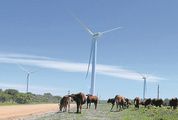


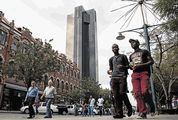
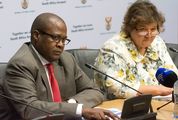
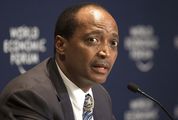
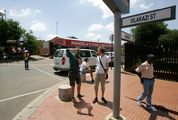









Change: 0.40%
Change: 0.47%
Change: -0.49%
Change: 0.53%
Change: 1.03%
Data supplied by Profile Data
Change: 1.71%
Change: 1.28%
Change: 0.40%
Change: 0.00%
Change: 1.64%
Data supplied by Profile Data
Change: -1.27%
Change: 0.00%
Change: 0.05%
Change: -0.08%
Change: 0.35%
Data supplied by Profile Data
Change: -0.02%
Change: 0.21%
Change: -0.06%
Change: 0.53%
Change: 0.70%
Data supplied by Profile Data